After months of deep economic and social crisis, Sri Lanka began to enter a "power vacuum"
In the early morning of July 10, local time, Sri Lankan President Tabaya Rajapaksa informed Speaker Abe Wadena that he would resign from the presidency on July 13. Earlier in the day, the Sri Lankan Prime Minister's Office issued a statement saying that Sri Lankan Prime Minister Wickremesinghe was willing to resign.
On July 9, the largest demonstration in recent times broke out in Colombo, the capital of Sri Lanka. Demonstrators stormed the presidential residence, the presidential office and the prime minister's office.
In the middle of the night on the 9th, a large number of demonstrators set fire to the Prime Minister's residence. The Chinese Embassy in Sri Lanka issued a message on the 9th, reminding Chinese citizens in Sri Lanka to strengthen security.
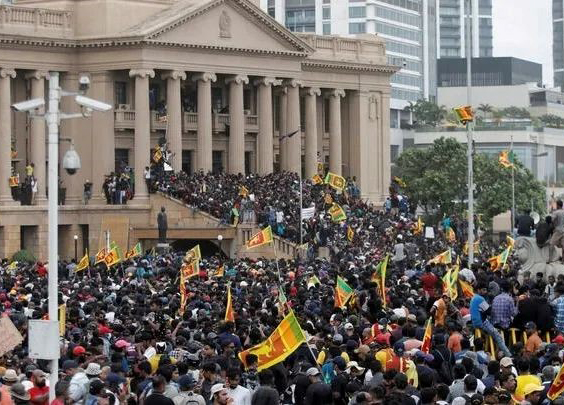
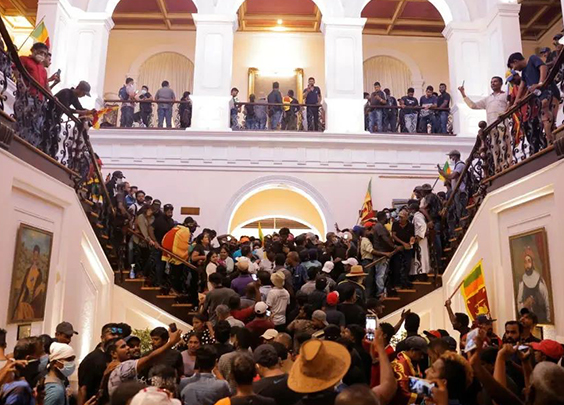
In recent months, Sri Lanka has been facing problems such as lack of foreign exchange, soaring prices, and shortage of electricity and oil supply. Protesters have launched demonstrations one after another, demanding the government to quickly solve the economic crisis facing the country.
Public outrage and protests forced former Prime Minister Mahinda Rajapaksa to step down on May 9, but the biggest crisis in 70 years has not gotten better as time went on. Masinghe said "Sri Lanka's economy has completely collapsed". On July 6, he told parliament that "the country is bankrupt".
When talking about the crisis in Sri Lanka, most analysts attribute it to the new crown pneumonia epidemic, the conflict between Russia and Ukraine, the disruption of global supply chains, soaring energy prices, and the Federal Reserve's continuous interest rate hikes. Heavy losses, a sharp decline in overseas remittance income, and a slump in foundry companies.
In fact, these are just incentives. The deeper reasons are Sri Lanka's high external debt and chronic trade and current account deficits. It is a typical "twin deficit country".
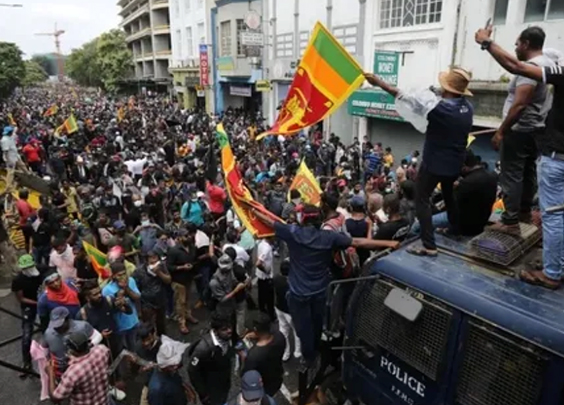
Its external debt and external debt service ratio have remained high since 2013. In 2018, the three major international rating agencies rated Sri Lanka as B2 or B, believing that the country's solvency is weak, and once economic or political problems or external shocks occur, there will be a higher risk of foreign debt default.
Russia-Ukraine conflict pushes it to a cliff
Sri Lanka has been mired in an "economic death spiral" over the past few months, with the economic situation "seeing to get worse week by week".
According to reports, Sri Lanka, with a population of about 22 million, is completely dependent on imports for important commodities such as medicines and fuel. However, under the double impact of the new crown epidemic and the conflict between Russia and Ukraine, global commodity prices have soared, which has caused a serious shortage of fuel, coal, milk powder and other living materials due to insufficient foreign exchange reserves in this South Asian island country, which is highly dependent on imports.
The analysis pointed out that Sri Lanka's step-by-step approach to complete collapse was caused by many unique circumstances and internal factors. Yet the country's shocking collapse is also inextricably linked to a broader set of interconnected global phenomena, such as the Russian-Ukrainian conflict that has sent global food and energy prices soaring, pushing already struggling Sri Lanka to the cliff edge.
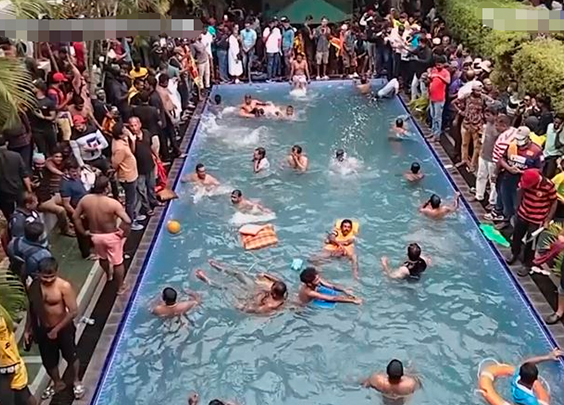
Sri Lanka has been trying to avoid a debt default due to a drop in foreign exchange reserves following the outbreak of the Russia-Ukraine conflict. To control the domestic economic situation, the government decided to raise interest rates, devalue the currency, and limit non-essential imports. In addition to raising borrowing costs and devaluing the Sri Lankan rupee, former central bank governor Kabral has urged the government to limit imports of about 300 non-essential goods such as electrical appliances and Apple products, and increase domestic fuel and electricity prices.
In fact, as early as March 2020, in order to preserve foreign exchange reserves, the Sri Lankan government issued a broad import ban, triggering a shortage of key commodities. Milk powder, sugar, lentils and other key supplies have been rationed in supermarkets. Last year, the Sri Lankan government banned the import of fertilizers for its organic farming program, leading to nutrient shortages, crop failures and protests, forcing the government to reverse the decision in November.
However, on May 19, Sri Lanka still failed to avoid its first sovereign debt default since independence. Unable to repay the interest on the $78 million due debt, triggering a sovereign debt crisis. According to CCTV news reports, Sri Lanka's available foreign exchange reserves at that time were less than 50 million US dollars, and its foreign debt had reached 51 billion US dollars. The economic crisis faced by the country will continue for at least two years.
Before the prime minister and president announced their resignation, the country was running out of fuel and food inflation had soared to 80 percent. Power outages are also getting longer due to fuel shortages. In March this year, Sri Lanka began to implement a seven-hour daily power cut. On March 31, the Sri Lankan authorities announced a power outage for 13 hours a day, which seriously affected the work and life of the people.
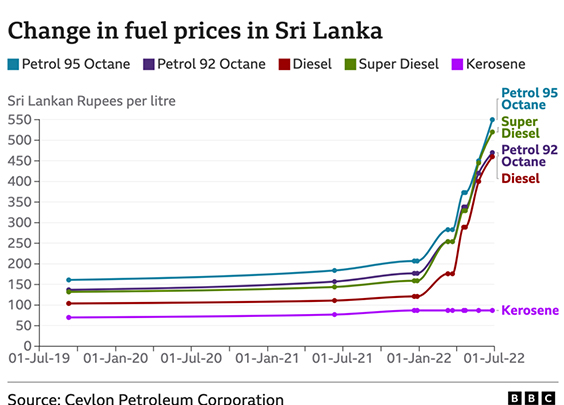
By the weekend, Sri Lankan government officials said there was not enough fuel left to maintain essential services such as buses, trains and medical vehicles, and the country's 22 million residents were asked to work from home. According to reports, Sri Lanka has announced that it will stop selling fuel to ordinary people from July 10, becoming the first country in the world to "cut fuel" since the 1970s.
Some analysts believe that the crisis in Sri Lanka has also shown the world that the conflict between Russia and Ukraine is putting some fragile developing economies at risk and hampering the efforts of millions of people to lift themselves out of poverty for decades.
In June, Wickremesinghe also lamented in an interview that the Russian-Ukrainian conflict has accelerated Sri Lanka's economic collapse. He also warned that Sri Lanka would not be the only or the last "to fall". "I think by the end of the year you'll see the impact on other countries," he said.